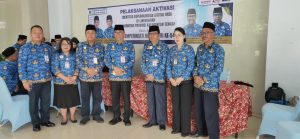| Regional Head Elections, such as Governors, Mayors, and Regents at the local level, are an integral part of Indonesia’s democratic system, allowing citizens to have a direct voice in choosing their local leaders. These elections play a crucial role in shaping the governance and development of provinces, cities, and regencies throughout the country.
Key points about regional head elections in Indonesia include: 1. Direct Election: Regional head elections are conducted through a direct voting system. This means that voters in specific provinces, cities, or regencies have the right to directly elect the candidates they prefer for their respective positions, without the involvement of intermediary election bodies. 2. Regular Schedule: Regional head elections are usually held every five years, although exceptions may apply due to specific circumstances. 3. Eligibility: To run for the position of a regional head, candidates must meet certain eligibility criteria, including citizenship, age requirements, educational qualifications, and residency status in the area they intend to represent. 4. Multi-Candidate System: Regional head elections generally involve multiple candidates competing for the same position. This fosters competition and gives voters various choices to select from. 5. Political Parties: Candidates running for regional head positions often have affiliations with political parties. Indonesia has a multi-party system, and political parties play a crucial role in supporting candidates and mobilizing voters. 6. Two-Round System (if necessary): In some cases, if no candidate obtains an absolute majority (more than 50%) in the first round of voting, a second round, known as a runoff election, is held between the top two candidates with the highest vote shares. 7. Campaign Period: Before the election day, candidates conduct campaigns to promote their platforms and gain support from voters. 8. Importance of Local Issues: Regional elections tend to focus on local issues and problems that directly impact the respective provinces, cities, or regencies. This allows citizens to elect leaders who understand the unique challenges in their regions and can address them effectively. 9. Electoral Oversight: Independent institutions, such as the General Election Commission (KPU), play a vital role in supervising and organizing regional head elections to ensure a fair, transparent, and integrity-driven process. This concludes the information about Regional Head Elections, and we hope you find it beneficial. Author, Sem |






